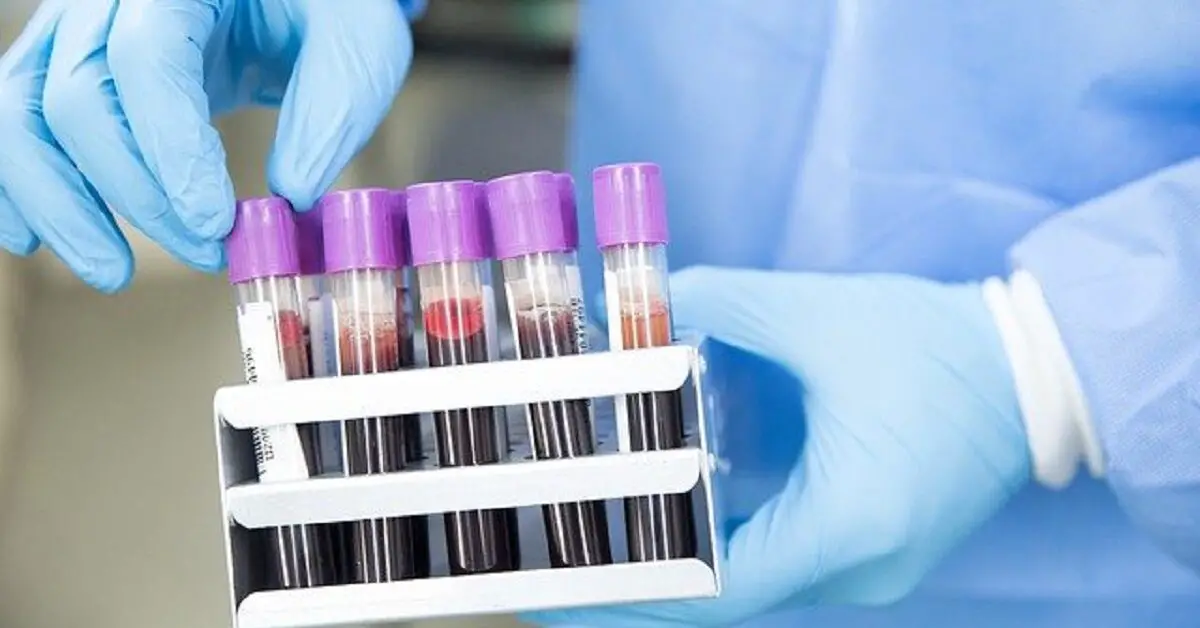
Medical experts for long believed that vitamin B12 (cobalamin) and folate supplementation helped prevent cancer and that they were safe even at high doses. However, recent studies suggested that high B12 and folate blood levels may be associated with increased cancer risk.
This article reviews 12 studies that investigated the effects of high-dose B12-folate supplementation and high B12-folate blood levels on cancer risk in men and women.
We present a summary of the key findings here:
High B12 and folate levels may increase cancer risk
High B12, folate levels, and cancer risk in women
Contents:
Study 1: Effect of high-dose B12 and folate on cancer mortality
Study 2: Effect of combined B vitamins on breast cancer risk
Study 3: Effect on colorectal cancer risk
Study 4: Effect of supplementation
Study 5: High B vitamin levels and breast cancer
Study 6: Long-term supplementation and lung cancer
Study 7: Long-term supplementation and colorectal cancer
Study 8: Elevated B12 levels and short-term cancer risk
Study 9: Effect of high B12 status
Study 10: Elevated B12 levels and solid cancers
Study 11: Effect of supplementation in women
Study 12: Effect of high-dose supplementation
High B12 and folate levels may increase cancer risk

Multiple studies reported an association between high vitamin B12 and folate levels and an increased risk of cancers, such as lung and colorectal cancer.
Some studies investigated high B12 (cobalamin) and folate (folic acid or vitamin B9) levels due to high-dose supplementation and concluded that excessive B vitamin supplementation could pose serious health risks.
While it is unlikely that anyone would get too much vitamin B12 and folate from eating nutrient-dense foods, you may get more than you need from taking supplements.
Other studies investigated individuals with unexplained high cobalamin and folic acid blood levels. The studies concluded that high blood B12 and folate levels could be markers of solid cancer.
However, some studies found no relationship between B vitamins and increased cancer risk.
The inconsistent results regarding cancer risk and B12-folate levels could be due to several factors. The likely factors include different doses and combinations of B vitamins, duration of treatment, and differences in the health status, age, and gender of the trial participants.
Some studies suggested that vitamin B6 may protect against cancers, such as colorectal cancer.
High B12-folate levels and cancer risk in women
Multiple studies found differences in B12 and folate-related cancer risks between men and women.
Luu and associates (2021) reported that a positive correlation between high-dose B12 supplementation and lung cancer was more pronounced in men than women.
Matejcic and co-workers (2017) reported that plasma levels of folate and cobalamin were not associated with a significantly higher overall risk of breast cancer in women. The researchers found only a marginally positive correlation between cobalamin status and breast cancer risk in women consuming above median levels of alcohol. They also reported a positive association between B12 status and breast cancer risk in women with folate levels below the median value.
According to Brasky and colleagues (2017), supplemental use of vitamins B12, folic acid, and B6 was not associated with lung cancer risk among women.
More studies are needed to explain the gender differences in B vitamin level-related cancer risks.
What are B12 and folate vitamins good for?

Vitamin B12 (cobalamin) is an essential water-soluble vitamin produced by anaerobic and aerobic microbes. The microbes live in the digestive systems of ruminant animals, such as cattle, sheep, and goats, where they break down grass and vegetation to produce the vitamin.
Ruminants absorb and utilize the cobalamin produced by the bacteria in their gut. However, humans do not synthesize B12. We cannot absorb the small amounts of B12 produced by bacteria in our guts, so we get most of our cobalamin from meat and milk obtained from herbivorous animals.
You can get vitamin B12 only from animal products, such as meats, fish, and dairy. Thus people on a strict vegetarian diet who don’t take supplements or fortified foods are more likely to suffer B12 deficiency.
Cobalamin and folic acid are essential for health and wellness. Both vitamins participate in many metabolic and regulatory processes of the human body. They serve as cofactors for many enzymes involved in energy metabolism, DNA, and protein synthesis.
The fact that the vitamins play roles in DNA synthesis means that deficiency may lead to impaired production of red blood cells. Insufficient red blood cells may cause B12 deficiency anemia or pernicious anemia (Biermer’s disease or Addisonian anemia).
B12 and folic acid help in maintaining the health of the central nervous system (brain and spinal cord). They play roles in the development, maturation, and regeneration of nerve cells and the synthesis of neurotransmitters. Thus, deficiency may lead to neurological symptoms.
Neurological symptoms associated with cobalamin and folate deficiency may lead to irreversible damage to the CNS.
Despite the essential roles cobalamin and folic acid play in human nutrition, there are growing concerns about the health risks of high-dose supplementation and high blood levels of the vitamins.
Can too much B12 and folate cause cancer?

The FDA recommended the following B vitamin Daily Values (DVs) for adults:
Vitamin B12: 2.4mcg
Source: FDA
Folate: 400mcg
Vitamin B6: 1.7mg
Study 1: Effect of high-dose B12 and folate on cancer mortality
Clinical trials conducted in Norway suggested that high-dose B12 and folic acid supplementation were associated with an increased risk of cancer in patients with ischemic heart disease.
Ebbing and associates (2009) reported on results from two randomized, double-blind, placebo-controlled clinical trials involving 6,837 patients with ischemic heart disease. The participants received the following treatments between 1998 and 2005:
- 1708 patients received B12 (0.4mg/day), folic acid (0.8mg.day), and vitamin B6 (40mg/day)
- 1703 patients received folic acid (0.8mg/day) plus B12 (0.4mg/day)
- 1705 patients received B6 alone (40mg/day)
- 1721 received placebo
The patients received the treatments for 39 months, followed by 38 months of post-trial observation and follow-up. The researchers reported that the serum folate levels of patients who took folate increased by more than 6-fold.
They found that patients who took cobalamin and folic acid supplements had a significantly increased incidence of cancer and all-cause mortality (death from various causes) compared with patients on placebo.
According to the authors, the increased incidence of cancer in patients receiving cobalamin and folic acid was due to an increased incidence of lung cancer. However, they found no association with B6 treatment.
Ebbing and associates concluded that treatment with folic acid (B9) and vitamin B12 was associated with an increased risk of cancer and all-cause mortality in patients with ischemic heart disease.
Study 2: Effect on breast cancer risk

Zhang and associates (2008) investigated the effect of combined vitamin B12, folic acid, and vitamin B6 supplementation on cancer risk in women at a high risk of cardiovascular disease.
The study involved 5,442 female health professionals aged 42 years or older with preexisting cardiovascular diseases and multiple coronary risk factors.
The researchers assigned the participants to two groups:
The first group (n=2721) received daily treatment with folic acid (2.5mg), vitamin B6 (50mg), and vitamin B12 (1mg) for 7 years (April 1998 to July 2005). The second group (n=2721 participants) received a placebo.
After 7 years, 187 women in the treatment group had developed cancer, compared with 192 in the placebo group.
Zhang and colleagues reported that the groups receiving B supplementation and placebo had a similar risk of total invasive or breast cancer.
They concluded that combined folic acid, vitamin B6, and cobalamin treatment did not increase the risk of invasive and breast cancer.
Study 3: Effect on colorectal cancer risk
Marchand and associates (2010) noted that vitamins B12, B6, and folate (B9) play roles as coenzymes in one-carbon metabolism and may affect the risk of colorectal cancers.
[Note: One-carbon metabolism refers to the crucial metabolic pathways for the synthesis of DNA, polyamines, amino acids, creatine, and phospholipids. The biochemical pathways involve homocysteine, methionine, B12, B6, and B9.]
They investigated the relationship between B12, folate, B6 (in its active form pyridoxal-5’-phosphate, PLP) levels and colorectal cancer risk.
The study involved 224 participants with colorectal cancer and 411 controls. The researchers adjusted for other factors that may affect plasma levels of the vitamins, such as alcohol intake, genetic factors (MTHFR C677T genotype), and plasma C-reactive protein (CRP).
They reported an inverse relationship between B6 levels (plasma PLP levels) and colorectal cancer. The inverse relationship was stronger at low levels of alcohol intake and among participants with the MTHFR 677TT genotype.
[Note: An inverse relationship means that high B6 levels were associated with a reduced risk of colorectal cancer.]
They also found an inverse relationship between colorectal cancer risk and plasma folate among participants with low levels of alcohol intake.
Overall, they concluded that their data suggested that vitamin B6 reduced the risk of colorectal cancer.
Study 4: Effect of supplementation

Zhang and associates (2016) reported that previous studies suggested that B supplementation was associated with increased cancer risk. They conducted a meta-analysis of randomized controlled trials (RCTs) to evaluate the effect of cobalamin, folic acid, and B6 supplementation on cancer incidence, death due to cancer, and total mortality.
They reported that their meta-analysis did not find any association between vitamin B supplementation and cancer incidence, death due to cancer, or total mortality. However, they note that it was associated with a lower risk of skin melanoma.
Study 5: High B vitamins and breast cancer risk
According to Matejcic and co-workers (2017), previous epidemiological studies gave conflicting reports about B vitamin blood levels and breast cancer risk.
The researchers conducted a study to evaluate the relationship between folate and cobalamin levels and the risk of breast cancer. They measured the folate and B12 plasma concentrations of 2,491 women with breast cancer and 2,521 controls.
Statistical analysis found that plasma levels of folate and B12 were not associated with a significantly higher overall risk of breast cancer.
However, Matejcic and colleagues found a marginally positive correlation between B12 status and breast cancer risk in women consuming above median levels of alcohol. They also found a positive correlation between vitamin B12 status and breast cancer risk in women with plasma folate levels below the median value.
The authors concluded that their data did not reveal any clear association between cobalamin, folic acid levels, and breast cancer risk. But they said there was a need to investigate potential interactions between cobalamin and alcohol, and cobalamin and folate.
Study 6: Effect of long-term supplementation
According to Brasky and associates (2017), previous studies reported inconsistent findings on the link between B vitamin supplementation and lung cancer.
They noted that the high prevalence of vitamin B supplementation warranted further investigation.
Brasky and colleagues studied the association between long-term B supplementation (B12, folate, and B6) and lung cancer.
The study involved 77,118 participants aged 50 to 76 years who enrolled in the trial between October 2000 and December 2002. The researchers collected information about the average daily vitamin B intake of the participants over 10 years.
They found that supplemental use of vitamins B12, folic acid, and B6 was not associated with lung cancer among women. However, vitamin B12 and B6 supplementation from single supplement sources (as opposed to multivitamin sources) were associated with a 30% to 40% increase in lung cancer risk among men.
Brasky and co-workers also found a nearly two-fold increase in lung cancer risk among men taking the highest doses of vitamin B6 (>20 mg/day) and B12 (> 55µg/day).
The authors noted that the risk associated with B6 and cobalamin intake was even higher among men who smoked. They reported that the association between lung cancer and B vitamin intake was weaker among men with a form of the disease known as adenocarcinoma.
Adenocarcinoma is known to be less related to smoking.
Brasky and colleagues concluded that their data suggested that B supplementation did not protect against lung cancer and that it could be harmful.
Study 7: Long-term supplementation and risk of colorectal cancer

Araghi and co-workers (2019) reported that folic acid and cobalamin play roles in one-carbon metabolism. The researchers noted that disruption of one-carbon metabolism may affect cancer risk.
The scientists conducted a double-blind, randomized placebo-controlled trial to assess the long-term (2-3 years) effects of supplementation with folic acid (400 μg) and B12 (500 μg) on bone fracture incidence.
Araghi and associates also collected data on the incidence of colorectal and other forms of cancer.
The authors reported that data suggested B12 and folic acid supplementation were associated with a higher risk of colorectal cancer.
Araghi and colleagues concluded that while the data showed that folic acid and vitamin B12 supplementation increased colorectal cancer risk, more studies were needed to determine whether to restrict supplementation to patients with proven deficiency and other indications.
Study 8: Elevated B12 levels and short-term cancer risk
A study by Arendt and associates (2019) reported that elevated B12 levels were associated with increased short-term cancer risk.
The researchers measured the plasma B12 levels of prospective participants. They then excluded individuals with low plasma levels, those who already had cancer, and those who recently received supplements.
Thus, the study included only 757,185 patients seen in primary care centers who met the inclusion criteria.
Arendt and co-workers reported that individuals with elevated B12 levels had a higher one-year risk of cancer than individuals with normal levels.
After adjustments for the effects of lifestyle and social deprivation, individuals with high B12 levels (>1,000 pmol/L) still showed a significantly higher incidence of cancer.
The increased risk was pronounced in liver, pancreatic cancer, and myeloid malignancies, the authors reported.
They concluded that elevated plasma B12 levels were associated with an increased one-year cancer risk compared with individuals with normal levels.
Arendt and colleagues suggested that the result could mean that some cancers affected cobalamin metabolism.
Study 9: Effect of high B12 status

Fanidi and associates (2019) conducted a study to investigate the role of vitamin B12 in causing lung cancer. They reported that high-dose supplementation may be harmful to health and may increase cancer risk.
According to the researchers, there was a positive correlation between circulating cobalamin and the risk of lung cancer. They also reported a dose-dependent positive association between cobalamin levels and cancer risk.
That meant that lung cancer risk increased with increases in circulating cobalamin levels.
Fanidi and colleagues also found a positive correlation between genetically determined B12 levels and lung cancer risk.
The authors concluded that the results of their study supported the hypothesis that high B12 status was associated with an increased risk of lung cancer.
Study 10: Elevated B12 levels and incidence of solid cancers
Urbanski and colleagues (2020) reported that national registries documented an association between unexplained elevated vitamin B12 levels and solid cancers. But they noted that the data did not adjust for other conditions that may be associated with high cobalamin levels.
Thus, the objective of their study was to evaluate the association between elevated B12 and solid cancer risk after adjusting for other conditions that may cause high blood vitamin levels.
Urbanski and co-workers also aimed to study the variations in cancer risk as B12 levels increased and determine the type of cancers associated with elevated blood levels of the vitamin.
The study involved comparing 785 patients with high B12 levels (≥ 1000 ng/L) with 785 controls with lower blood levels (< 1000 ng/L).
The analysis adjusted for other causes of elevated cobalamin levels, including myeloid blood malignancies, acute or chronic liver diseases, chronic kidney failure, autoimmune or inflammatory diseases, and excessive B12 supplementation.
After adjusting for other causes of elevated cobalamin, Urbanski and associates found that high blood levels (≥ 1000 ng/L) were associated with the presence of solid cancer with and without metastases (cancer that has spread from the part of the body where it originated to other parts).
The association increased with increasing B12 levels, especially in cases with metastases, according to the researchers.
They noted that after adjusting for chronic liver diseases, they found no association between liver cancers and high vitamin levels.
Urbanski and colleagues suggested that unexplained elevated cobalamin levels could be markers of solid cancer.
Study 11: Supplementation and lung cancer risk in women

In 2017, Brasky and colleagues published a study in which they concluded that B12, folic acid, and B6 supplementation increased the risk of lung cancer.
They published a follow-up study (2020) that focussed on resolving the inconsistent results for women.
The study investigated the association between B vitamin supplementation (B12, folate, and B6) and lung cancer risk in women. It involved 159,232 participants recruited between 1993 and 1998 from 40 clinical centers in the U.S.
Brasky and colleagues monitored the participants for an average of 18.3 years and information about their intake of B vitamins was collected.
The study found that women who took more than or equal to 50 mg of vitamin B6 daily (≥50 mg/day) had a 16% reduced risk of lung cancer. The association was not significantly different between smokers and nonsmokers, the researchers reported.
They also found that intake of folate and vitamin B12 was not associated with an increased risk of lung cancer among women.
The study appeared to confirm the suggestion from previous studies that a high intake of vitamin B6 may protect against lung cancers. However, the authors recommended more similar high-quality studies.
Study 12: Effect of supplementation
Luu and colleagues (2021) reported that epidemiological studies conducted in the past on the association between high B12 supplementation and lung cancer risk gave inconsistent results and that more studies were needed to clarify persisting uncertainties.
The researchers reported that a study of 63,257 men and women, found a positive association between a higher intake of vitamin B12 and lung cancer.
The participants enrolled in the 25-year study between 1993 and 1998 when they were 45 to 75 years of age. They responded to a questionnaire about their intake of cobalamin supplements.
A follow-up 17 years later found that 2001 participants had developed lung cancer. The authors found a statistically significant association between high B12 intake and cancer risk.
According to Luu and associates, the positive correlation between cobalamin and lung cancer was more pronounced in men than women.
Luu and associates concluded the study showed that a higher intake of cobalamin was associated with an increased risk of lung cancer.
They added that vitamin B12 supplementation may be harmful to health.

